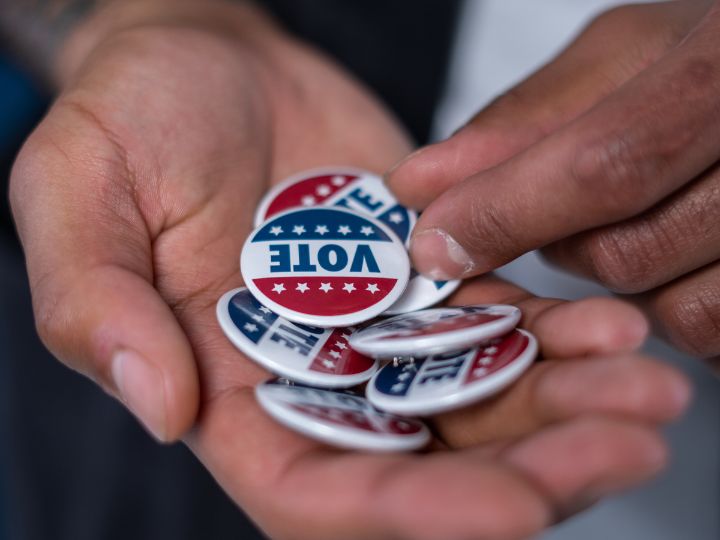
Texas Gov. Greg Abbott is leading Democratic challenger Beto O'Rourke by 13 percentage points in the final days leading up to the 2022 election, an election driven by voter concerns about crime and public safety, inflation and the reliability of the state's electric grid.
A poll released Tuesday by the Hobby School of Public Affairs at the University of Houston found Republican candidates leading all statewide races by double digits. Abbott drew support from 53% of likely voters, while 40% said they will vote for O'Rourke.
Renée Cross, senior executive director and researcher at the Hobby School, said the results reinforce Texas' reputation as a red state. The tightest statewide race was that for attorney general, with incumbent Republican Ken Paxton leading Democrat Rochelle Garza by 12 points.
"We found stark generational differences, with millennials and members of Gen Z more likely to support Democratic candidates than older voters," Cross said. "Black and Latino voters also continue to lean Democratic, but that wasn't enough to overcome Republican momentum."
In fact, a majority of likely voters said they have a favorable opinion of four key political figures: Abbott (56%), Donald Trump (53%), Ted Cruz (53%) and Ron DeSantis (50%).
Mark P. Jones, senior research associate at the Hobby School and political science fellow at Rice University's Baker Institute for Public Policy, said voter's top concerns may explain their choices. "Eighty-five percent of likely voters told us that crime and public safety is an extremely important or very important factor in deciding who to support in the gubernatorial election," he said. "Inflation and the reliability of the electric grid were close behind at 83% and 81%."
Both in Texas and nationally, Republicans have sought to capitalize on concerns about crime and inflation, and Jones said the poll results suggest that has been successful. Almost two-thirds of likely voters indicate they will vote early, overwhelmingly in-person, while one in four likely voters say they plan to vote on election day.
Women have been cast as potential swing voters in recent years, but the Hobby poll found women supporting Republican candidates in higher numbers. While the split was relatively narrow in the gubernatorial race – 48% of women support Abbott, while 44% of women said they will vote for O'Rourke – it was wider for races further down on the ballot. O'Rourke and other Democratic candidates have pledged to support reproductive rights, but just 10% of likely voters listed abortion as the top issue affecting their choice in the governor's race. (That rises to 45% among voters supporting O'Rourke.)
Among the poll's other findings:
- Incumbent Republican Lt. Gov. Dan Patrick leads Democrat Mike Collier 51% to 36%.
- Incumbent Republican Attorney General Ken Paxton leads Democrat Rochelle Garza 49% to 37%.
- Incumbent Republican Comptroller Glenn Hegar leads Democrat Janet Dudding 49% to 32%.
- Republican Dawn Buckingham leads Democrat Jay Kleberg in the land commissioner race, 48% to 32%.
- Incumbent Republican Agriculture Commissioner Sid Miller leads Democrat Susan Hays 49% to 35%.
- Incumbent Railroad Commissioner Republican Wayne Christian leads Democrat Luke Warford 47% to 33%.
- Except for Beto O'Rourke, who is universally well-known, more than half of the likely voters do not know enough about the other statewide Democratic plural executive candidates to have an opinion of them. The same is true for the GOP candidates other than Abbott, Patrick and Paxton.
- Researchers found no overlap between the top issues Abbott voters said were extremely or very important – inflation (95%), immigration and border security (95%), crime and public safety (92%), government spending and taxes (89%), and economic growth (83%) – and those named by O'Rourke voters: voting rights (90%), health care costs (90%), electric grid reliability (88%), abortion (84%), and K-12 public education (83%).
- Five issues were ranked extremely or very important to the gubernatorial voting decision by fewer than half of likely voters: racial equity and equality (48%), climate change (43%), COVID-19 policies (41%), marijuana legalization (33%), and LGBTQ rights (29%).






